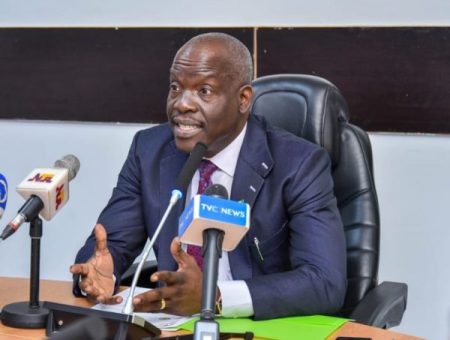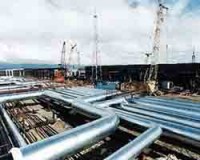6 September 2011, Sweetcrude, Abuja – The Central Bank of Nigeria (CBN) says the N300 billion it has earmarked for the power and aviation sectors is aimed at fast-tracking the development of electric power projects, especially in the identified industrial clusters in the country.
CBN’s director in charge of Development Finance, represented at a recent conference in Lagos by an Assistant Director, Mr. Isaac Okoroafor, said the fund was also to support the development of the aviation sector, by improving the terms of credit to the airlines.
According to him, the Bank of Industry (BOI) is the managing agent of the fund, known as Power and Airline Intervention Fund (PAIF), while Africa Finance Corporation (AFC) is the Technical Adviser.
“Any corporate entity, duly registered in Nigeria, involved in electricity power supply value chain that includes power generation, transmission, distribution, fuel supply and associated services, is eligible. The project could be already existing and in operation, in design or development, under construction, or existing but operationally inactive,” he said.
Okoroafor further stated that the facility should not be more than 70 per cent of the total cost of the project.
“Loans have a tenor of 10 to 15 years, while a working capital facility shall be of one year duration with provision for roll-over but not more than 5 years. The fund allows for moratorium in the loan repayment,” he added.
He also said that banks charge seven per cent, of which one per cent would be remitted to BOI.
Okoroafor was upbeat that a national strategic linkage amongst oil, gas, power and agriculture was evolving with the recent launch of the gas revolution by President Goodluck Jonathan.
He noted that the $10billion project, expected to create 500,000 jobs for Nigerians, aims at harnessing the country’s 187trillion cubic feet of gas reserves to power thermal stations.
This will lead to the construction of a giant petrochemical plant, two fertilizer plants; five fertilizer blending plants, a methanol plant and a liquefied petroleum gas distribution plant.
He said the revolution was expected to attract about $25billion of investments.
Okoroafor said there were two ways in which the apex bank’s monetary policy could impact the oil and gas industry.
“First, is the maintenance of stable macro-economic environment – stable prices and exchange rates. The second is the nurturing of strong and reliable banks to effectively play intermediation roles and partner with oil and gas investors in project finance,” he said.
He stressed that at the heart of the current banking reforms was the quest to curb what he described as “extreme financialisation” to enable the financial sector effectively fund the real sector, fast-track job creation, poverty reduction and economic growth.
The apex bank’s assistant director noted that Nigeria was the 8th largest crude oil producer, with 6th largest deposit of natural gas in the world, but over half of the population live on less than $1 per day.
“With over 100 tertiary institutions producing more than 200,000 graduates yearly in petroleum engineering, geology, geophysics, chemical engineering, and other oil and gas-related disciplines; millions of Nigerians live in other countries, many of them, world-class professionals in oil and gas,” he added.




